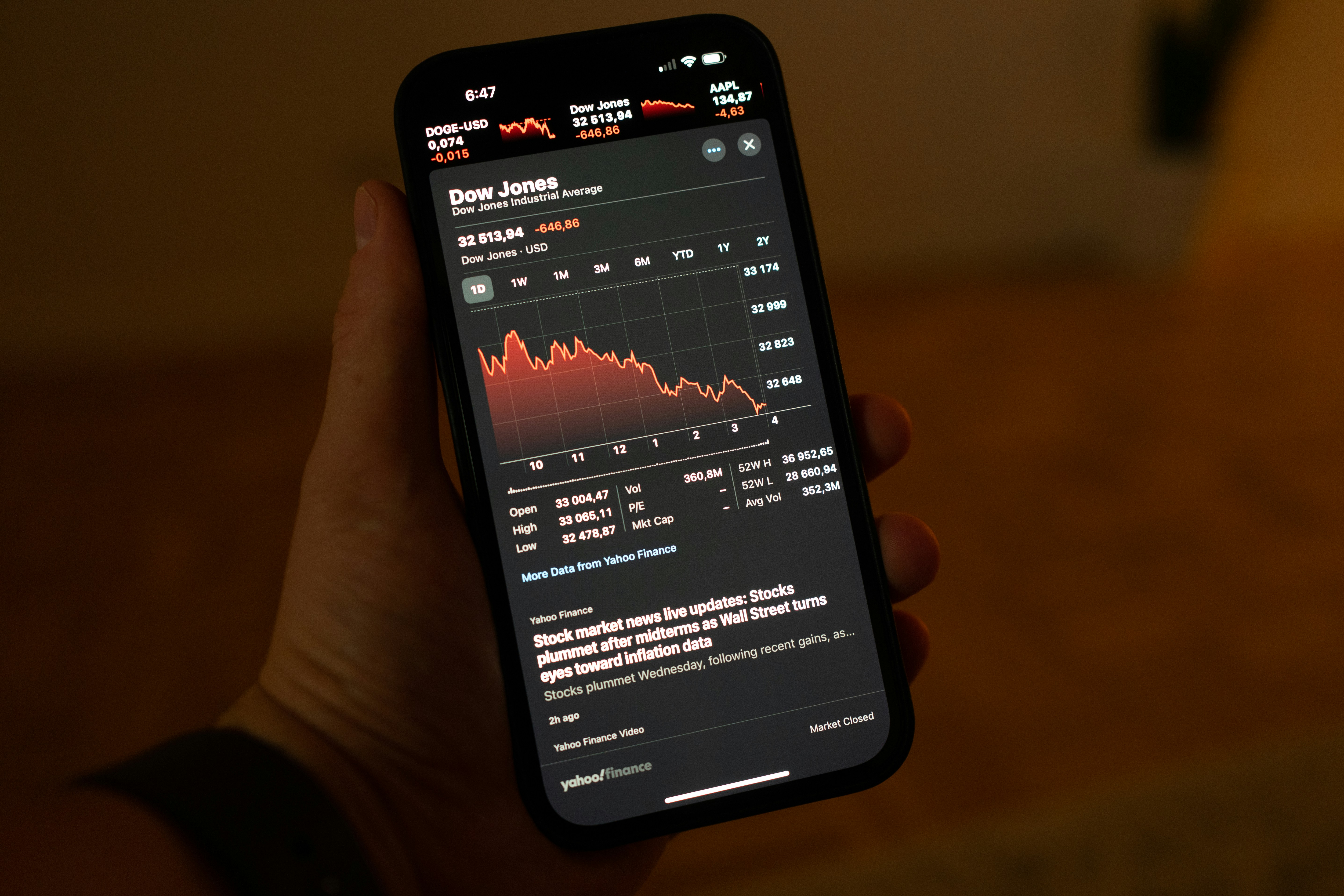
Understanding the Current Market Conditions
The recent outbreak of conflict in the Middle East has introduced a wave of volatility across global markets, leading to significant declines in stock prices. Key indexes, such as the S&P 500, Dow Jones Industrial Average, and Nasdaq Composite, have experienced notable downturns as investors react to the uncertainties associated with geopolitical instability. The ramifications of these events extend beyond mere fluctuations in stock values, as they influence investor sentiment and broader economic conditions.
As tensions rise in the Middle East, investors often gravitate towards safe-haven assets, typically causing a decline in equities while bolstering the value of the U.S. dollar. This movement underscores the flight-to-safety behavior exhibited during times of crisis, as seen in the current market conditions. Sectors that are particularly sensitive to these geopolitical developments, such as energy and defense, have also shown pronounced reactions, reflecting both investor concerns over oil supply disruptions and shifts in national defense spending priorities.
The recent volatility signals a broader narrative within the investment community, where uncertainty reigns supreme. Market participants remain cautious, weighing the potential consequences of continued conflict in the Middle East on global economic stability. Analysts are closely monitoring developments, as prolonged unrest could exacerbate supply chain disruptions and inflationary pressures, directly impacting economic forecasts. As the situation evolves, it is imperative for investors to stay informed, adapting to the shifting landscape while considering the balance between risk and opportunity.
In conclusion, the intersection of the Middle East conflict and market dynamics has created a complex environment for traders and investors alike. Understanding these market conditions is crucial for navigating this challenging period, as the potential for future developments continues to loom large.
The Role of Safe-Haven Assets in Turbulent Times
In periods of geopolitical uncertainty and market turmoil, investors often seek refuge in safe-haven assets to shield their portfolios from volatility. Safe-haven assets are financial instruments that are believed to retain value or even appreciate in times of crisis, thereby providing a buffer against losses experienced in other investment areas such as equities. Historically, gold and the U.S. dollar have emerged as the quintessential examples of safe-haven investments, attracting a significant influx of capital during turbulent periods.
Gold, often referred to as a hedge against inflation and currency devaluation, tends to experience price surges during crises. For instance, during the COVID-19 pandemic and subsequent economic downturn, gold prices soared as investors scrambled to secure tangible assets amidst uncertainties surrounding traditional financial markets. The commodity’s allure lies in its intrinsic value and finite supply, characteristics that are not easily replicated by fiat currencies or stock market investments.
Similarly, the U.S. dollar has been viewed as a safe-haven currency, particularly during global market turmoil. Investors flock to the dollar, seeing it as a stable store of value. The Dollar Index, which tracks the performance of the U.S. dollar against a basket of foreign currencies, often rises during geopolitical conflicts, reflecting heightened demand for the dollar as a safe-haven asset. Recent trends show that amid escalating tensions in the Middle East, the dollar has strengthened, as foreign investors seek to minimize risk.
Historical precedents illustrate this consistent behavior among investors when faced with uncertainty. For example, during the Gulf War and the financial crisis of 2008, both gold and the U.S. dollar saw significant appreciation as investors prioritized safety over potential high returns from riskier assets. This pattern underscores the crucial role safe-haven assets play in mitigating risk and preserving wealth during tumultuous times.
The Correlation Between Geopolitical Events and Market Movement
The relationship between geopolitical events and financial markets has been a subject of extensive research and analysis among economists and market analysts. Historically, conflicts, such as the current turmoil in the Middle East, have demonstrated a tendency to induce volatility in stock markets while simultaneously influencing safe-haven assets. This is primarily due to heightened uncertainty and risk aversion among investors, who often react by reallocating their portfolios in pursuit of stability.
When geopolitical tensions escalate, investors typically gravitate towards safe-haven assets, such as gold and the US dollar, which are perceived as more stable during turbulent periods. This movement can cause notable fluctuations in the value of these currencies, similar to the current rise in the dollar as fears over conflict spread. Conversely, stock markets often suffer, experiencing declines as companies forge an uncertain outlook amid potential disruptions in trade and supply chains. The market’s reaction can be swift, as demonstrated during past conflicts like the Gulf War and more recent clashes, where immediate sell-offs in equity markets were observed.
Experts suggest that following these historical patterns can provide insights into current and future market behavior. For instance, during the Iraq War in 2003, stock indices plummeted as conflict erupted, while oil prices surged as supply concerns mounted. Additionally, research indicates that while immediate reactions to geopolitical events may be negative, over the long term, markets often stabilize and recover as new information emerges and investors reassess their positions. Case studies of past geopolitical disturbances reveal that initial panic can give way to measured responses once clarity is restored.
In essence, understanding the correlation between geopolitical events and market movements is crucial for investors navigating these turbulent waters. Recognizing these dynamics allows for strategic decision-making and effective risk management in the face of global instability.
Future Trends and Predictions for Investors
As geopolitical tensions continue to shape market dynamics, investors are left to contemplate the implications for their portfolios. Historically, periods of unrest, particularly in the Middle East, have led to increased volatility in the stock market and a corresponding rise in safe-haven assets such as gold and government bonds. Analysts predict that such trends will persist as conflicts escalate or evolve, influencing investor sentiment and trading behaviors. This suggests that investors should remain vigilant and adapt to the fluid landscape of the financial markets.
Expert forecasts indicate that the stock market may struggle to regain its footing as uncertainty breeds caution among traders. Fluctuating oil prices, influenced by conflict in oil-rich regions, could further exacerbate inflation concerns, deterring equity investments in sectors sensitive to energy costs. Conversely, safe-haven assets are expected to experience sustained demand, as global uncertainties propel investors toward less risky ventures. Gold, in particular, often serves as a hedge against market downturns and inflation, suggesting a potential price increase in the wake of continued geopolitical instability.
In terms of strategies, a cautious approach may be prudent for investors during these tumultuous times. Diversifying asset allocation to incorporate both stable, defensive stocks and traditional safe havens could minimize risk while capitalizing on possible opportunities. Additionally, maintaining a long-term investment horizon is key to weathering short-term volatility driven by external factors. By leveraging insights from geopolitical analyses and market behavior, investors can navigate the increasingly complex financial landscape more effectively.
Ultimately, anticipating market reactions to geopolitical events is critical for successful portfolio management. Keeping an eye on emerging conflicts and their economic implications will empower investors to make informed decisions and align their strategies with prevailing trends, ensuring resilience in an unpredictable environment.
